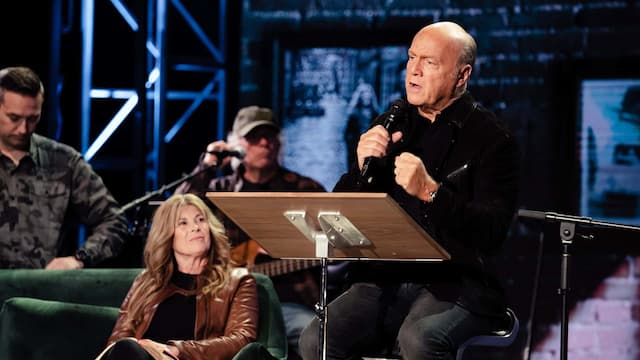8th Sunday in Ordinary Time: Wanted, Authentic Christians

One of the most wanted virtues today, especially in this age of fake news, is authenticity. Today, we live with so many fakes from products to food to news and to human persons. We are bombarded with fake products like denims, electronics, dvds, drugs even food like fish and rice. We are made to believe in fake news on social media like facebook and youtube. We wear masks and interact with people who wear masks just so we become more acceptable in society which in the long run does not just hide our identity but become who we are.
Why do fake flourish? It is cheaper to buy fake products inasmuch as it is easier to live in the lie than in the truth. in many cases facing the truth requires a tremendous amount of courage for truth can be very harsh. Most humans have an intense desire to escape from their problems and to even construct a false reality just to avoid facing the truth.
The shortage in authenticity is also prevalent in religion today. This is not much truer than in the Catholic faith. The lack of authentic Catholics have led many not to go to church anymore or worse has turned agnostic and atheist. The conviction of Cardinal George Pell for sexual assault in Australia this week has further provoked distrust in church’s authority, which is already reeling from the many sexual abuse cases in recent years.
It is to this contemporary search for authenticity that today’s readings of the 8th Sunday in ordinary time addresses. The readings for this 8th Sunday speaks about the source of existential authenticity and how to live authentic Christians lives today. To be authentic Christians demands living beyond the minimal requirement of Christian faith which the readings of last Sunday talked about.
In the first reading, Sirach says that we can detect the true identity of people through their manner of speech; the way they speak, their tone, their volume, and their body language. Sirach demonstrates this in three sharp images. The act of speech is like sifting wheat through a sieve: as the sifting sorts out the husks, so our speech exposes the otherwise hidden faults of our character. And just as the hot fire of a kiln tests the craft of the potter, so the give and take of conversation tests the integrity of the interlocutors. Finally, just as the quality of a fruit tree indicates the care of its cultivator, so our speech reveals everything that has gone into our formation.
When a sieve is shaken, the husks appear;
so do one’s faults when one speaks.
As the test of what the potter molds is in the furnace,
so in tribulation is the test of the just.
The fruit of a tree shows the care it has had;
so too does one’s speech disclose the bent of one’s mind.
In the gospel, Jesus talks about spiritual integrity through the unity of of the different parts of the human body. John J. Pilch identifies three distinct yet interpenetrating symbolic zones which Jesus utilized in the gospel today: eyes-heart (the eyes for gathering the information that the heart needs for making judgments); mouth-ears (the organs that collect and share self-expressive speech); and hands-feet (the body parts that act upon or implement what one has learned or knows). [1]
Eyes-heart. Jesus spoke of teachers and guides with flawed vision (Lk 6:39-42). He noted the heart’s potential for producing both good and evil. He urged that teachers strive to develop proper vision and insight and a good heart.
Mouth-ears. For Jesus, it is clearly imperative that a person cultivate a good heart that will produce good fruit, “for it is out of the abundance of the heart that the mouth speaks” (Lk 6:45), words that others will hear, remember, and act upon.
Hands-feet. But speaking alone is not enough. “Why do you call me, ‘Lord, Lord’ and do not do what I tell you?” (Lk 6:45). It is imperative to act upon what one knows, to live according to what one has learned.
This is how the human person acts consistently, with all the symbolic body parts in sync: heart-eyes, mouth-ears, hands-feet. In other words, it is important that one’s emotion-fused thoughts (heart-eyes), self-expressive speech (mouth-ears), and purposeful activity (hands-feet) be perfectly coordinated. Anything else is stage-acting.
The inner worth of human beings is to be assessed from their words and deeds, just as “the fruit discloses the cultivation of a tree.” Full discipleship is not just all talk but practicing what one preaches, that is, “walking the talk”. Full discipleship, however, is not only a matter of walking the talk; it also entails “talking the walk.” That is, some of the most important Christian deeds will in fact be acts of speech, challenging injustice, encouraging the downhearted, and asking and giving forgiveness.
Besides consistency between the heart and other parts of the body and the integral unity of words and actions, Jesus exhorts his listeners to candid self-examination and authentic efforts to improve self before attempting to help others improve themselves. Short of this effort, such teachers and leaders are blind, unreliable, and untrustworthy. They are deceivers, actors, hypocrites!
Why do you notice the splinter in your brother’s eye,
but do not perceive the wooden beam in your own?
How can you say to your brother,
‘Brother, let me remove that splinter in your eye,’
when you do not even notice the wooden beam in your own eye?
You hypocrite! Remove the wooden beam from your eye first;
then you will see clearly
to remove the splinter in your brother’s eye.
To be authentic human being and Christian entails both internal and external transformation. St. Paul, in the second reading, says that this transformation is possible because of the ressurection of Jesus. In his letter to the Corinthians, St. Paul said that our bodies (hearts and minds) have been transformed through the resurrection of Jesus our Lord. Through the resurrection, we have become immortal, we have conquered the effect of sin. Our transformation in Christ inspires us to live our life of discipleship in word and deed.
Let me end with a prayer by Anne Osdieck, [2]
Christ,
be in my heart
to love everyone I meet,
be on my mind
to find you in all things,
on my tongue
to spread your love to all who hear me,
in my hands
to give your love to all in need,
in my feet
to take your love
everywhere
I go.
[1]John J. Pilch, “Historical Cultural Context, Eighth Sunday of Ordinary Time C,” The Sunday Website at Saint Louis University, March 3, 2019. Accessed at http://liturgy.slu.edu/8OrdC030319/theword_cultural.html.
[2] Anne Osdieck, “Praying Towards Sunday,” The Sunday Website at Saint Louis University, March 3, 2019. Accessed at http://liturgy.slu.edu/8OrdC030319/prayerpathmain.html.





